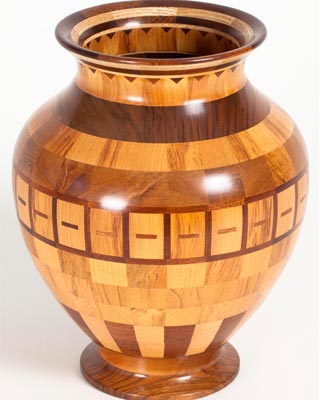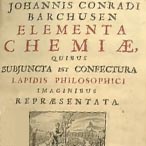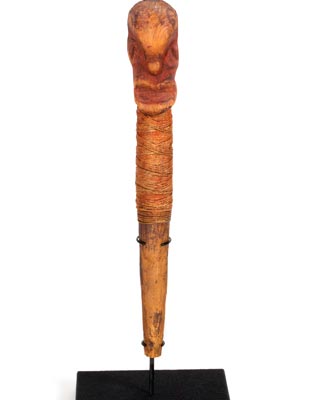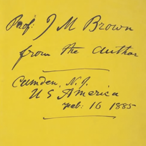The collections of the Canterbury Museum and the University of Canterbury can tell us much about scientific enquiry and ideas, whether these are connected with Māori knowledge systems or nineteenth-century settler society. Alongside the notebook of Tame Eutahi Kirini, with its reflections on Ancient Greek learning and planetary distances, we may find an example of a Whakapakoko atua (godstick) employed in communicating with traditional gods. In the same collections we also find the poetry of Walt Whitman given as the author’s personal gift to one of the University’s founding professors, as well as the microscope slides of a man who combined the role of Medical Officer of Health in late-nineteenth-century Christchurch with that of President of the Philosophical Institute.
Canterbury’s long-standing fascination with scientific enquiry, personified in its most famous graduate, Ernest, Lord Rutherford, is evident in the pages of works such as Edward Ravenscroft’s guide to coniferous trees or an early-eighteenth-century work by one of the founders of modern chemistry. An equal fascination with how the information gathered via such enquiry might be used to create beautiful objects is as evident in an example of eighteenth-century Meissen ceramics brought to Christchurch by early settlers, as it is in the more recent craftsmanship of Dutch immigrant Lewis Benschop.

Science and Knowledge
05 November 2023
HOW TO APPLY



